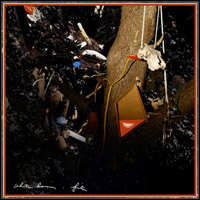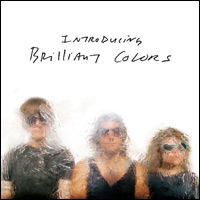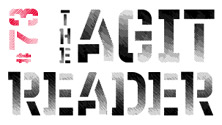
Raditude
Geffen
Remember this guy? Well kids, Rivers Cuomo is now officially one of the jocks. If he catches your lily-white face at one of his parties, he’ll beat your ass, or at least get one of his frat brothers to do it for him. Of course, the only reason this is worth mentioning is because, deep-down, Cuomo is still as nerdy as they come, which is why it’s so awkward to hear him sing about cars, babes and bars, as he’s done for the last three Weezer albums. Because if there’s one thing even less cool than a nerd singing about Dungeons and Dragons, it’s a nerd singing about how he can’t stop partying. Unless of course you’re this guy.
To be fair, Raditude (whose album title is attributed to an off-hand comment by professional Twitterer/actor Rainn Wilson) isn’t a total trainwreck from the start. “(If You’re Wondering If I Want You To) I Want You To” once again proves how much leverage a songwriter can gain by simply utilizing the timeless “Lust for Life”/“Are You Gonna Be My Girl?” drumbeat. And despite terrible lyrics, Cuomo lets us know on “I’m Your Daddy” that he hasn’t yet lost the ability to craft a catchy vocal melody. But the album shows its true colors on the one-two donkey punch of “The Girl Got Hot” and “Can’t Stop Partying.” The problems with the former are fairly self-evident as Cuomo makes it abundantly clear, without a shred of irony or self-awareness, that good looks are the only form of social currency females have at their disposals (right on brah!). And then there’s “Can’t Stop Partying,” featuring Lil’ Wayne, who is currently manufacturing his own fall from grace. The song combines the worst parts of two popular genres, reveling in the materialistic vapidity of Hot 100 rap, while employing the musical simplicity and unoriginality that plagues so many rock songs that manage to escape the basement of the charts.
The final blow to Cuomo’s good name is the disastrous “In the Mall,” whose title recalls The Blue Album’s “In the Garage,” though of course the two songs couldn’t be farther apart in execution or subject matter. Where “In the Garage” was a sweet paean to holing yourself up with your guitar and dreaming up classic riffs written for no one, “In the Mall” is an idiotic paean to shopping. I mean hey, I’m all for writing what you know, but if you have nothing better to sing about than to observe that there sure are a lot of Christmas decorations in this here mall, then maybe you should stop writing songs.
It bears the question, who is Cuomo’s audience for this music? High school girls? That’d be fine except that the latest singles by Taylor Swift and Miley Cyrus contain 10 times more lyrical complexity and genuine emotion than anything on this record. And the worst thing about it is that, after nearly a decade of underachievement, an album like Raditude is exactly what we’ve come to expect from Weezer.
David Holmes

By the Throat
Bedroom Community
Ben Frost is among the royalty of Iceland’s avant music scene. He counts composer Nico Muhly and producer Valgeir Sigurôsson (Björk, Sigur Ros, Kronos Quartet) among his cohorts. But By the Throat is a very strange album, even by Icelandic standards. By which I mean that it’s compelling, mystifying, disturbing, and beautiful.
The record opens with “Killshot,” which layers calm arpeggios with the slowly creeping sound of someone scraping the inside of your head with a rusted file. Again and again, the slightest drumbeat signals the coming of this relentless, distorted creaking. The overall effect is overwhelming and will set you completely awry from whatever you were doing before you pressed play. One track down, 10 to go.
Whether or not you make it through the rest of the CD will depend largely on your tolerance for aural and psychological disruption: glitches, keening, buzzing, torturous dissonance. It may occasionally be challenging, like learning new words by pounding a dictionary against your skull, but you will not be able to avoid engaging with this music. And once you sink in, you might not be able to disengage. Consider yourselves warned, my friends.
For instance, “O God Protect Me” has one gently repeating melodic figure over the intimate sounds of a patient quite possibly breathing their last. It’s a scene you’d probably never choose to hear, but once you begin it’s decidedly difficult to turn away. When the record ends, you’ll wonder where you are, how much time has passed, and whether you ever want to feel this way again.
Matt Slaybaugh

Fits
Downtown
Fits may be one of the most apropos album titles in the current music-sphere. Not only is it the idyllic description of White Denim’s sound, which is fitful and frenetic indeed. White Denim’s music is an out-and-out attack on the synapses, and Fits is the musical equivalent of A.D.D.
The trio that is White Denim hails from the alt-rock mecca of Austin, Texas, so it seems only natural that they’d draw upon influences from a wide array of sounds. This latest studio album starts off with a bang, or more accurately, a wailing guitar riff, which breaks down into a Subtle-esque distortion-fueled jam session, then changes pace completely, slowing down, before finally ending—and that’s all just in the first four minutes of the album. “Say What You Want” encompasses fragments that sound distinctly like a twangy avant-garde homage to the Southern rock revival. And the same guitar mastery flows throughout, climaxing in “Mirrored and Reversed.” By the end of the album, White Denim manages to transform its sound into a gloomy folk-meets-ambient melange, which also produces some of the most refined (and the term is applied loosely) tunes.
Though Fits is a lavishly eclectic mixture of musical stylings, and certainly showcases White Denim’s talent and keen ear for music. It’s undeniably entertaining to see where White Denim will take you next, even if it takes a lot of work (and an extraordinary amount of patience) to keep up.
Jennifer Farmer

Introducing
Slumberland
By now regarding the Vivian Girls as the gold standard of femme-fronted dream-pop revivalism is old hat and actually a disservice to groups like San Francisco trio Brilliant Colors. Not to strip the V. Girls of whatever cache they’ve accumulated in such a short stint at the top, but Brilliant Colors at least take the crown when it comes to resurrecting neglected-in-their-day twee bookmarkers like the Shop Assistants and Tallulah Ghost. This brief (the album is right under 23 minutes long) buzzing ball of nerves actually sounds of British descent, going back to the reverb-drenched, though delightfully sober, melancholy of those C-86 bands that unknowingly concocted a genre we’d be pining over in the future.
Really, beyond the gauzy rush and upper register coos, there are few similarities between the Vivians and the Colors. It’s just hard to get past those sonic touchstones and pinpoint particular foibles. Where Cassie Ramone’s unhinged guitar playing is pretty much the defining (and most intriguing) trait of her group, here Jess Scott exudes a breathless syllabic punk ethos and even the fervor of the best riot grrl epithets. Songs like “Absolutely Anything” and “English Cities” are contagious because of a certain energy, a prickly execution and the adroitly melodic basslines of Michelle Hill pouncing as the anchor, though not particularly for being composed of catchy hooks. Regardless of who’s the mirror here, Brilliant Colors balance twee cuteness with an aggressiveness befitting the Slits. Trump that with the album’s penultimate thought-piece, “Motherload,” and Introducing shows a band with an expansive spirit. That’s enough of a fresh burst to keep them in the club, even when the club’s clientele is full of mimics.
Kevin J. Elliott
MP3: “Absolutely Anything”

Dog Poison
Captured Tracks
Maybe John Dwyer has a transdimensional vault somewhere in San Francisco full of discarded 13th Floor Elevators songs from which he periodically extracts cuts when he feels the need for a new Thee Oh Sees release. Maybe he has discovered a secret potion that enables the user to write song after song after song without finding the process monotonous or getting bored with recording every hook possible. More than likely, recording and songwriting are the only things he knows how to do “besides ride a bike and eat food” (he told Agit Reader as much). Dog Poison, written and performed entirely by John Dwyer (it says so on the back of the LP), is the latest release in the already dense thicket of Oh Sees material. It is short (maybe a little too short at 23 minutes with the 12-inch running at 45rpm), but as it is, you end up wanting more.
“The Fizz” is a ”60s coin-a-term fad rocker a la “Harry Rag” or “Here Comes The Nice.” “I Can’t Pay You To Disappear,” aside from having the coolest song title of 2009 so far, employs a flute to soften the fuzzbomb atmospherics and will work its way into Williamsburgian after-hours disc jockeys’ playlists soon enough. “The Sun Goes Down All Around,” slower and croonier than the rest of the record, recalls the moodier LP Thee Hounds of Foggy Notion, and “Dead Energy” sounds like the weirder stuff Dan Melchior has been doing lately. It’s safe to say that Dwyer is a prodigious songwriter; here’s hoping he doesn’t forget how to ride a bike or eat food because there’s gotta be something to hold him back from putting a record out every week. Furthermore, I would like to submit a formal complaint that Dog Poison is awesome and because of that I’m annoyed that I will have too many Oh Sees related music on my year-end best-of list.
Michael P. O’Shaughnessy

Oh, Glory. Oh, Wilderness.
Bakery Outlet
Holopaw, whose first two outings on Sub Pop were both solid works of creatively subdued folk, have gotten considerably less attention than one might have once expected. This fact is equally surprising considering lead crooner John Orth’s amazing vocal work in Isaac Brock’s supergroup, Ugly Casanova, back in 2002. Oh well, this is hardly the sole instance of the flooded market’s prevention of well warranted appreciation. Luckily, the Gainesville band has crafted another album of gems that remain consistent with their prior engagements without falling into the common trap of redundancy.
The opening track is one of awkward longing titled “The Art Teacher and The Little Stallion,” and to tell the truth, it is a bit of an odd duck, sounding like it might have belonged somewhere else on the record (or a B-side). Luckily, “The Lazy Matador,” the album’s standout tune, serves as a proper entry into the next half hour or so. Much like Will Oldham, Orth’s high-pitched delivery is best accompanied by subtle finger-picking and the faint crash of lightly caressed cymbals. The band knows this and effectively offsets this dynamic with crescendo-like bridges on tracks like “P-a-l-o-m-i-n-e” and “Oh, Glory.” While the record does move seamlessly and retains all of the best qualities of a band continuing to hone their craft, I’m afraid this record will go just as unnoticed as its predecessors.
Phil Goldberg
MP3: “The Art Teacher and the Little Stallion”

World Painted Blood
American/Sony
Something seems to happen when you invoke the name of Slayer. Even people who don’t listen to metal or at best only have a passing knowledge of the band know that there are metal bands and then there’s SLAYER. As one of the founders of American thrash metal, they’ve consistently trafficked in some of the most brutal performances the genre has to offer. For more than 25 years, they’ve been the standard bearers for audio aggression and now they’ve returned with their latest record World Painted Blood.
Much like their spiritual brothers Motorhead, Slayer has stuck to their musical guns with the single-minded determination of an alligator locked onto a victim’s leg. There are no embarrassing power ballads in their past, no snappy goodtime songs to gain them radio play. The most “poppy” moments come when they slowdown the songs from a breakneck speed, but even then, the songs are heavy enough to break a cinder block in two. In that aspect, World Painted Blood is business as usual. However, there are no phoned-in performances on the record. Instead, Slayer are inspired and focused, tearing through the album’s eight tracks in an economic half-hour running time.
Lyrically, the band still pulls from a grab bag of topics from politics to religion to all manners of evildoing. But what may be missed in a casual listening is that these are actually fairly well constructed songs. While some moments do tend to club the listener over the head with a lack of subtlety, the band isn’t afraid to add some nuance. Sure Slayer is pissed off, but they’ll find an interesting way to tell you about it.
But World Painted Blood also showcases the power of Slayer as musicians. Lead guitarist Kerry King’s solos explode in tight bursts, going from screaming howls to tsunami force sheets of sound, while legendary drummer Dave Lombardo hasn’t missed a trick, his double–bass drum attack is as potent as ever. But lead singer/bassist Tom Ayara is no slouch, both providing whiplash basslines and larynx-shredding vocals. And guitarist Jeff Hanneman provides smart counterplay to King, holding a strong rhythmic foundation to anchor the proceedings. The band kills every moment on the record. The only minor complaint is that the production doesn’t lets the songs hit as hard as they could. Simply put, everything could be much louder.
There’s been a rumor that Slayer may be looking at calling it a day in the not so distant future. But if they can keep making records as exhilarating as World Painted Blood, let’s hope that day never comes.
Dorian S. Ham
ALBUM REVIEWS
Maps, Turning the Mind
Stricken City, Songs About People I Know
A Place to Bury Strangers, Exploding Head
Jimi Tenor and Tony Allen, Inspiration Information
Kings of Convenience, Declaration of Dependence
Cold Cave, Love Comes Close
Beaten Awake, Thunder$troke
Dead Man's Bones, Dead Man's Bones
Florence + the Machine, Lungs
Flight of the Conchords, I Told You I Was Freaky
Atlas Sound, Logos
The Slits, Trapped Animal
Little Girls, Concepts
Fuck Buttons, Tarot Sport
